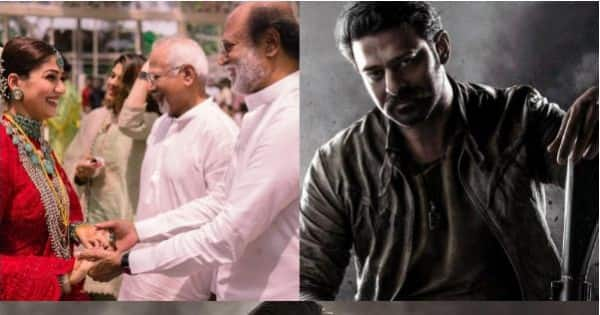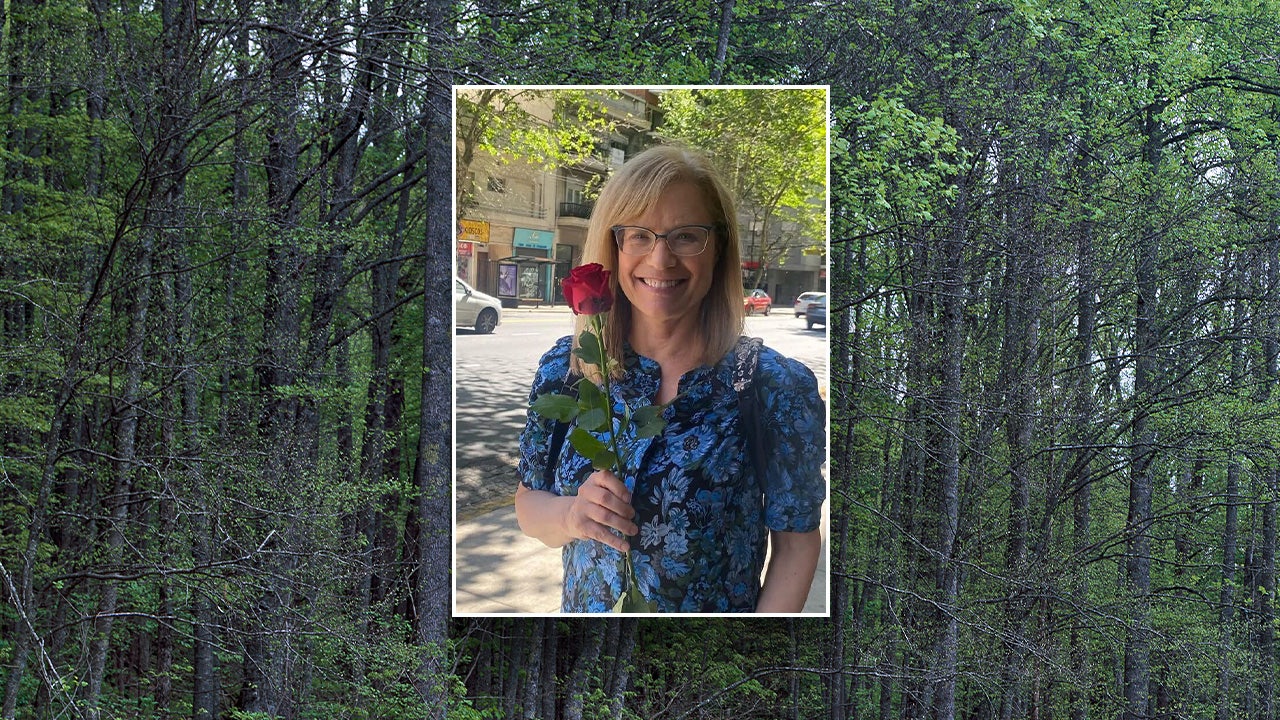Key events:
Closing summary
We’re going to close down this live blog now. Thanks for reading and commenting. Here’s a summary of the day’s events:
- The US president, Donald Trump, has talked up the possibility of a post-Brexit trade deal between Washington and London during his state visit. Trump claimed talks were already happening after his ambassador made clear the US would expect to be allowed business access to the NHS as part of any deal.
- Trump was honoured with a state banquet at Buckingham Palace, attended by the monarch and prominent political and business figures. The White House reiterated his support for Brexit and Trump used his speech to tell the Queen the UK’s sacrifice in the second world war “ensured that your destiny would always remain in your own hands”. The monarch reminded him of the two countries’ commitments to international organisations set up after that conflict to help ensure peace.
- The chancellor, Philip Hammond, said claims from Tory leadership contenders that they could renegotiate the Brexit deal were unrealistic. He challenged them to explain how they planned to “avoid becoming Theresa May mark II, stuck in a holding pattern”. The favourite to replace May, Boris Johnson, launched his leadership bid in earnest. He released a video promising Brexit – deal or no deal – on 31 October and calling for higher school spending, as well as defending stop and search and his record reducing crime.
- The Labour leader, Jeremy Corbyn, announced he would speak at an anti-Trump rally on Tuesday. He said the demonstration was an opportunity to “stand in solidarity with those [Trump has] attacked in America, around the world and in our own country.”
- Corbyn’s party colleague, Sadiq Khan, joined him in criticising Trump. Khan said Trump’s values were the “opposite of London’s values and Britain’s values”. The US president had earlier engaged in a personal attack on the London mayor, who wrote an article for the Observer protesting the state visit, and with whom Trump has had a long-running spat.
If you’d like to read more, my colleagues Caroline Davies, Heather Stewart and Simon Murphy have the full story:
The US secretary of state, Mike Pompeo, has been reiterating the White House’s stance on a US-UK trade deal, saying he regards it as a priority – but declining to say whether Washington will look to do a deal with the EU or the UK first. He has told NBC’s Euronews:
We’ve got to see how Brexit proceeds and how that timing goes, but yes, [a UK-US deal is] a priority for us. We have a deep, long relationship with the United Kingdom. We have important trade relationships. I’m here in the Netherlands today. They’re huge investors in the United States. The United States are huge investors inside of the Netherlands. We’re having a global entrepreneurial summit because of the two deep commitments to rule of law, trade, openness, entrepreneurship, as the centre of what we do.
We want to do that with the United Kingdom. Yes, we will. When Brexit is completed, as the people of the United Kingdom have demanded, we do intend to work on a free trade agreement with them – one that’s fair, reciprocal, based on mutual trust, and then we will both get after it and grow both of our economies.
Asked in which order the US would approach negotiations over deals with the EU and with the UK, Pompeo said: “I have no idea what the sequence will be.”
Theresa May will give Donald Trump a copy of one of the most significant documents in the transatlantic “special relationship” to mark his state visit. The prime minister and her husband, Philip, will present Trump with a framed typescript draft of the 1941 Atlantic Charter, agreed by president Franklin D Roosevelt and Winston Churchill, setting out their vision for the post-war world.
The US first lady, Melania Trump, will be given a bespoke tea set from designer Emma Bridgewater.
The prime minister’s spokesman said the Atlantic Charter was “one of the first steps towards the formation of the United Nations”.
It’s a copy of Churchill’s personal draft of August 12, 1941, with his amendments in red pencil. There were no further amendments made and Churchill kept the draft on his wall as a reminder. A copy has kindly been provided with the consent of Winston Churchill’s family.
The first lady will receive a “bespoke No 10 tea set”.
Asked why Donald Trump was being given a historically significant gift, while his wife was being given a tea set, the spokesman said: “I think they are both gifts which have been carefully chosen.” The tea set was “a memento of a visit to No 10 as part of what we hope will be a successful state visit”.
Boris Johnson has lodged an application for a judicial review over a decision to summons him to court over claims he lied during the 2016 Brexit referendum campaign, the campaigner who brought the prosecution against him says.
Marcus Ball says Johnson’s legal team is seeking an order that it was unlawful for Westminster magistrates court to issue the summons against the former foreign secretary, and to suspend the criminal proceedings against him until the application for judicial review was determined.
Ball says he is named an “interested party” in the application and will oppose the order, the Press Association reports.
The White House’s tweet linked to a statement, in which Washington said Trump wanted to strengthen economic ties with the UK through an ambitious new trade agreement.
The United Kingdom is one of the largest markets for US exports and one of the largest suppliers of US imports.
In February, President Trump outlined his negotiating objectives to strike an ambitious trade agreement with the United Kingdom after it leaves the EU.
As two of the top five largest economies in the world, the United States and the United Kingdom stand to benefit greatly from expanded trade and economic cooperation.
Here are some more on the comments made by Trump as the state banquet opened this evening. He told the Queen:
Your Majesty, Melania and I are profoundly honoured to be your guests for this historic state visit.
Thank you for your warm welcome, for this beautiful weather, your gracious hospitality, and Your Majesty’s nearly seven decades of treasured friendship with the United States of America.
This week, we commemorate a mighty endeavour of righteous nations and one of the greatest undertakings in all of history.
Seventy-five years ago, more than 150,000 allied troops were preparing on this island to parachute into France, storm the beaches of Normandy, and win back our civilisation.
As Her Majesty remembers, the British people had hoped and prayed and fought for this day for nearly five years.
In his remarks, Trump made a reference to the UK’s endeavours in the second world war that can be interpreted as a coded reference to Brexit, of which he is a supporter. He told the Queen:
The courage of the United Kingdom’s sons and daughters [during the second world war] ensured that your destiny would always remain in your own hands.
Minutes later, the White House tweeted that Trump wanted to see the process of the UK leaving the EU completed:
President Trump supports Brexit being accomplished in a way that maintains global economic stability while securing voters’ wishes for U.K. independence. https://t.co/AhOBiZCZ19
— The White House (@WhiteHouse) June 3, 2019
The Queen also mentioned the US and UK’s “strong cultural links and shared heritage” and said the two nations were “bound by the strength and breadth of our economic ties”. She said:
Mr President, as we look to the future, I am confident that our common values and shared interests will continue to unite us.
Tonight we celebrate an alliance that has helped to ensure the safety and prosperity of both our peoples for decades, and which I believe will endure for many years to come.
The Queen finished by inviting the room to raise a toast to the “continued friendship between our two nations, and to the health, prosperity and happiness of the people of the United States”.

In her speech, the Queen spoke of the “new challenges” the US and the UK face in the 21st century, and stressed the bonds between the two countries.
As we face the new challenges of the 21st century, the anniversary of D-day reminds us of all that our countries have achieved together.
After the shared sacrifices of the second world war, Britain and the United States worked with other allies to build an assembly of international institutions, to ensure that the horrors of conflict would never be repeated.
While the world has changed, we are forever mindful of the original purpose of these structures: nations working together to safeguard a hard-won peace.





















Discussion about this post